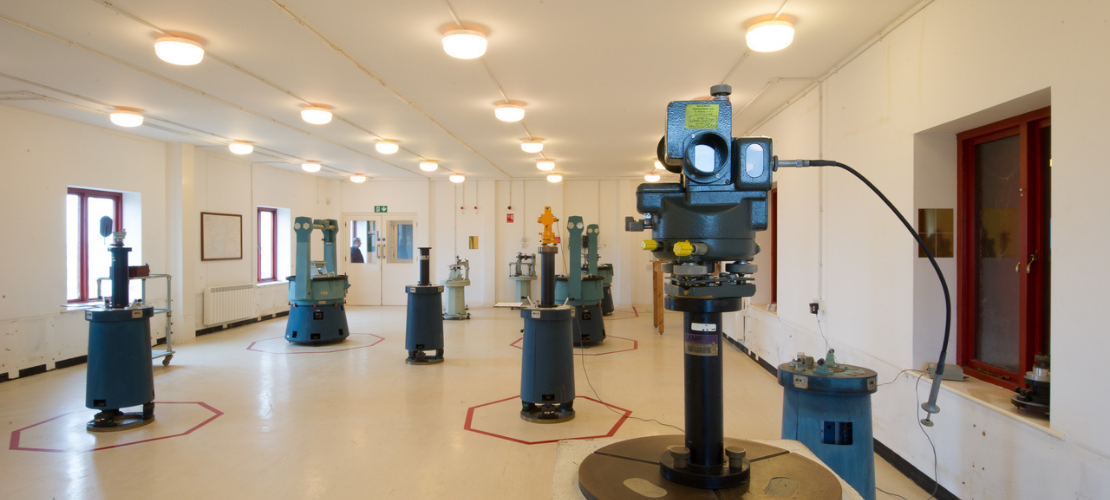Formerly part of the Admiralty Compass Observatory, relocated from Slough, the facility provides a UK local standard North-seeking compass to calibrate magnetic compasses. It’s the only such facility in the UK.
Situated on a magnetically clean site, the facility includes a non-magnetic test area within an isolated building, which accommodates the local standard instrument.
The Compass Calibration and Test Facility at MOD Portland Bill is based around a local, magnetic North-seeking needle housed in a "standards room". This needle is the acknowledged reference for calibrating compasses in the British Isles - and for all compasses fitted to vessels registered under British European flags. This needle establishes current magnetic north variation figures, which are added to/subtracted from certified true geological locations of various long distant siting targets. This is accurate to 6 seconds of arc, and standard output is constantly monitored.
The compass test centre’s floor area has a very low magnetic gradient. Within a background field of 48,000 nT (0.48 Gauss) the earth’s field change is no more than 19 nT - which represents a 0.04% shift. In addition, there is only a 2 nT change over the datum stand’s 5m radius.
Compasses are tested by mounting onto one of the unique test stands ơ and to manufacturer specifications ơ in accordance with ISO 25862.
The stands (pictured above) are used to measure over 20 specifications including direction, friction, period and swirl error. A darkroom tests the compass cards’ luminosity. The datum plinth is a nonmagnetic concrete column, which tests the most accurate compasses.
All types of magnetic systems’ magnetic moments, between 0.01 and 9.844 Am2 (10 - 9844 cgs units) can be measured using a suspension magnetometer - even when compasses are active and working.
The Compass Test Centre can be used as a testing location, where a magnetically clean environment is required.
